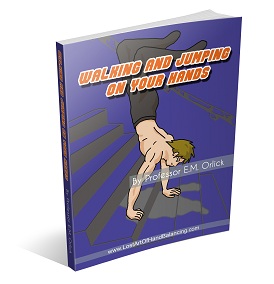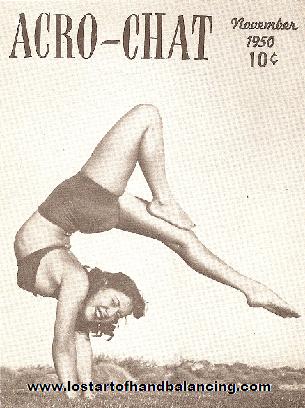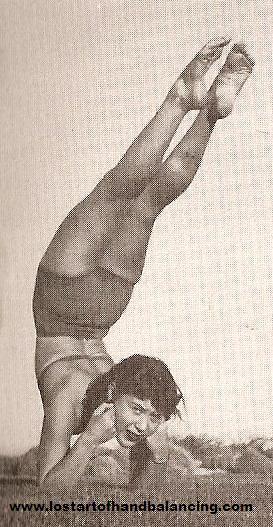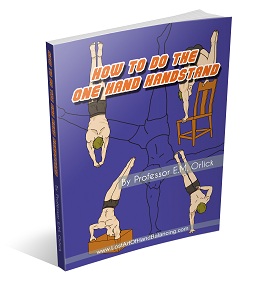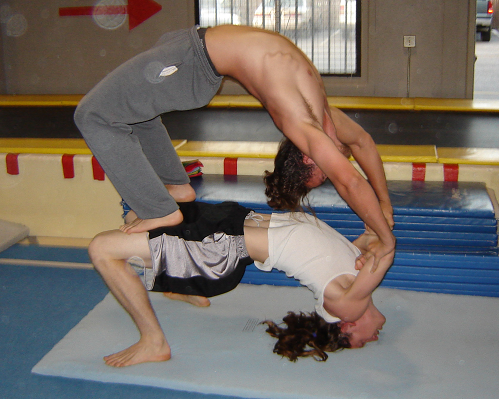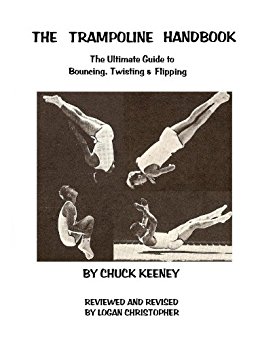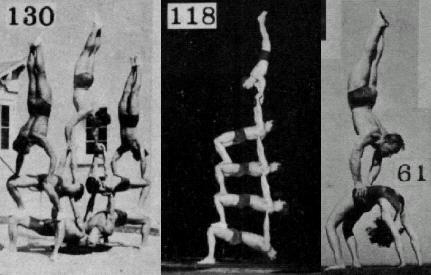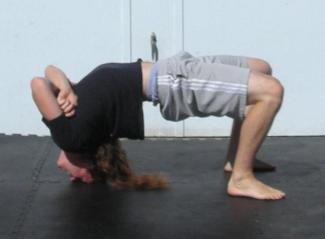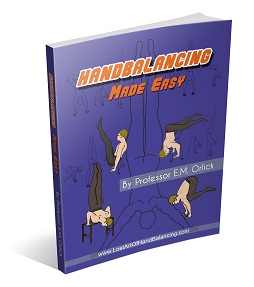Another thing I’ve devoted more of my time to recently is the handstand press. While a normal handstand does not take very much strength many of the presses do.
Handstand presses can be broken down into two main groups. Those done with straight arms and those down with bent arms.
The various bent arm presses take a high degree of strength in the shoulders, triceps and also the chest in many cases.
Straight arm press-ups still take strength but in different areas. Also you will need flexible wrists, hamstrings, and the ability to compress your body in half. In fact the more flexibility you have the less strength you will need.
For all these reasons most people will be better at either straight arm or bent arm presses. There are many people who can do the straight arm variety but will fall on their face if they have to bend their arms.
On the other hand most stronger people can do many bent armed presses. These take tremendous arm and shoulder strength to pull off successfully as you have to hold your entire bodyweight in mid air for a length of time. But for these people the straight arm presses can be elusive.
In the end you want to be able to do both. In order to do this you must train for both.
That’s why there’s chapters on the pressing in all the main books like Hand Balancing Made Easy and The True Art and Science of Hand Balancing.
Presses are not easy, especially if you’re not of the average gymnast size. But it can be done.
If you’ve ever wondered why hand balancers are so strong this is one of the major keys. So start pressing.
Good Luck and Good Hand Balancing,
Logan Christopher
P.S. There are so many ways you can press up into a handstand. Have you mastered them all? Start where you can and work from there.

